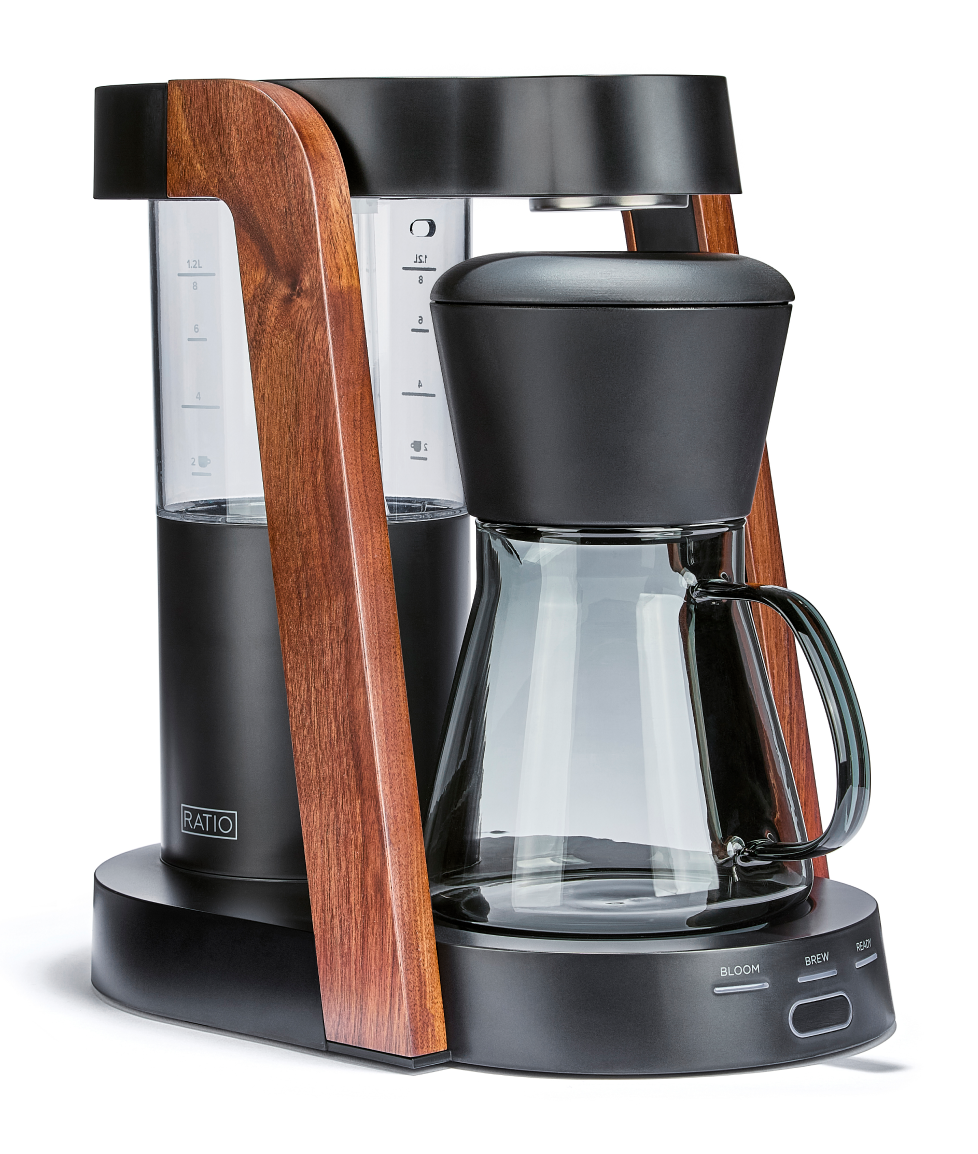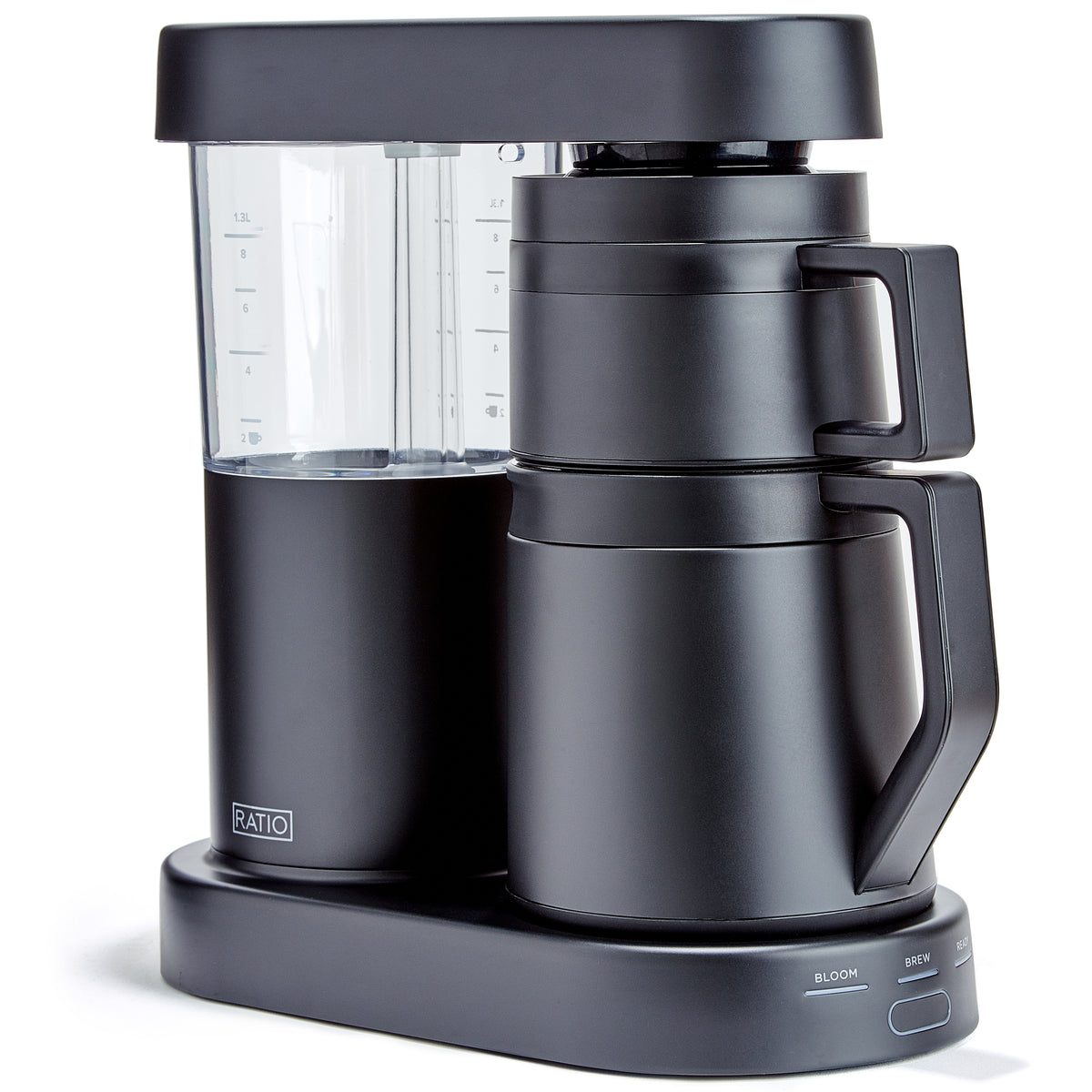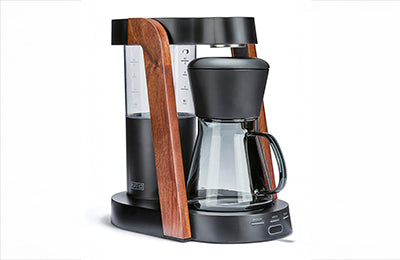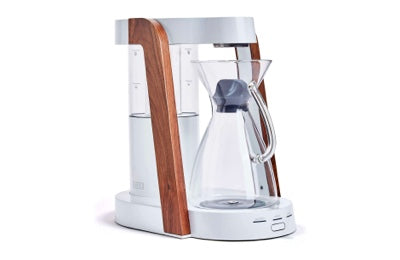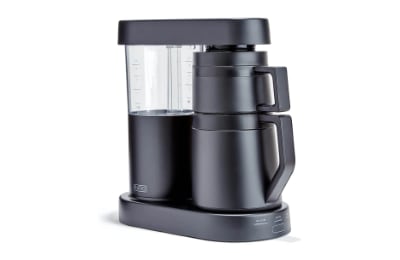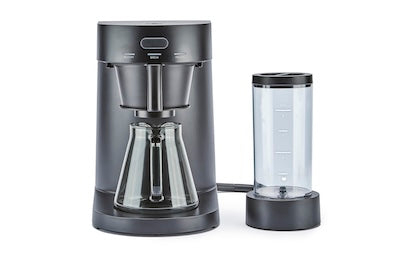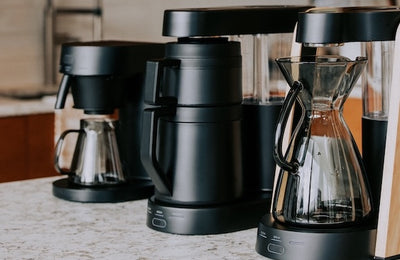Why Your Coffee Tastes Bitter (Hint: It’s Not the Beans)
Key Takeaways
- Coffee bitterness often results from brewing techniques, not the beans themselves.
- Over-extraction can lead to the release of too many bitter compounds.
- Water temperature and quality play crucial roles in reducing bitterness.
- Freshness of coffee beans enhances flavor and reduces unwanted tastes.
- Adjusting coffee-to-water ratios and brew times can perfect your recipe.
Have you ever brewed a cup of coffee, only to find it leaves a bitter taste on your palate? Surprisingly, the beans themselves might not be the culprit. More often, the bitterness comes from the methods used during preparation. It might be an imbalance in your coffee brewing techniques or the temperature of your water. Over-extraction, where water seeps through grinds for too long, also plays a key role in this bitterness. Different types of coffee require distinct approaches. Maybe there's a need to explore diverse coffee drink recipes to unlock flavors that aren't bitter. With a tweak here and there, you could be sipping smoother, more inviting coffee.

Understanding Coffee Bitterness
When trying to understand why coffee tastes bitter, you quickly learn that it often goes beyond the beans. A major factor is the concept of over-extraction. When coffee grounds are exposed to hot water for too long, they release too many solubles, leading to an overly bitter brew. The fine balance in coffee brewing techniques can play a crucial role in preventing this.
Water temperature can significantly impact the taste of your coffee. Using water that’s too hot can extract unwanted bitter compounds quickly. For optimal results, aim for a water temperature between 195 to 205 degrees Fahrenheit. This range is ideal for enhancing the natural flavors without the bitterness overpowering the brew.
Different types of coffee call for varied brewing times. For instance, espresso, with a brief brewing period, has less exposure to water, reducing bitterness. On the other hand, if you’re using a French press, the longer brewing time requires careful attention to avoid the undesired taste. Experimenting with coffee drink recipes might also provide insights into achieving the desired flavor balance.
For example, a brewing method like the Aeropress can extract flavors efficiently with a balanced taste, offering a cleaner profile compared to a traditional drip method. This technique highlights how changing the brewing approach can significantly alter the taste outcome, emphasizing the importance of method over just the beans.
By experimenting with brewing times, water temperature, and methods, you’re able to discover the optimal balance that reduces coffee’s bitterness. These adjustments ultimately lead to a more enjoyable coffee experience, allowing you to fully appreciate the complex and unique profile each cup has to offer.
Common Misconceptions About Coffee Beans
One common misconception is that all coffee beans taste the same, but different types of coffee beans have distinct flavor profiles. Arabica beans, for example, generally offer a smoother, sweeter taste, while Robusta beans tend to be stronger and more bitter. Assuming all beans taste alike might lead you to overlook how these subtleties affect the bitterness in your cup.
It's often wrongly believed that dark roasted beans are inherently bitter. While dark roasts bring out robust flavors, they don’t have to be overwhelmingly bitter. It’s about how you approach the roasting process and apply coffee brewing techniques. By adjusting the grind size and brewing method, you can enhance the deep, bold flavors without the bitterness standing out.
Some folks think that the fresher the beans, the less bitter the taste. While freshness is important, storing beans incorrectly can lead to an undesirable taste. Oxygen, moisture, and excessive heat can degrade beans quickly, highlighting the need for proper storage solutions. You might find coffee drink recipes that capitalize on the freshness, concentrating on preserving the bean's integrity over time.
In the coming years, the emphasis on bean roasting and sourcing practices is likely to grow as people seek more refined coffee experiences. This could lead to a broader understanding and appreciation of the relationship between bean quality and brewing methods, illustrating that bitterness can be minimized through informed choices rather than default assumptions.
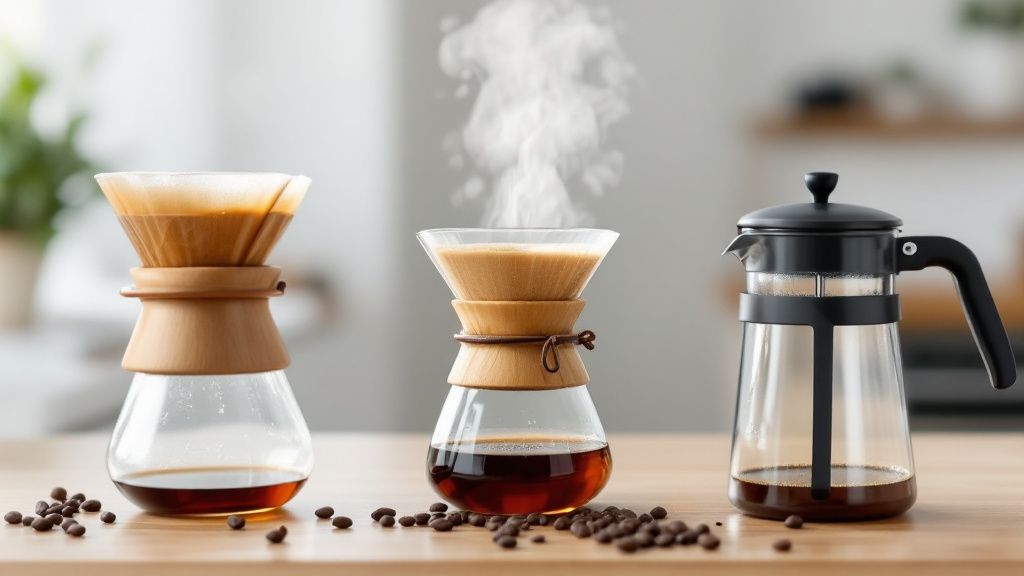
Brewing Techniques That Affect Taste
The way you brew your coffee can greatly affect its taste, potentially leading to bitterness. Over-extraction is a common issue. If water stays in contact with the grinds for too long, it can extract too many compounds, impacting the flavor negatively. Mastering a balance in how you brew can significantly improve your coffee experience.
Water quality and temperature play pivotal roles in brewing techniques. Using water that's too hot or of poor quality can lead to an unappealing taste. Ideally, you should use clean, filtered water heated to 195-205 degrees Fahrenheit. This range allows flavors to bloom without bitterness overwhelming the experience, helping you appreciate the diverse types of coffee.
The grind size of your coffee directly impacts the taste. For example, coarse grinds are suitable for a French press, whereas fine grinds are perfect for espresso. Mismatching your grind size with the brewing method can either cause bitterness or lead to a weak flavor profile. Experimenting with different coffee drink recipes can guide you to find the right balance.
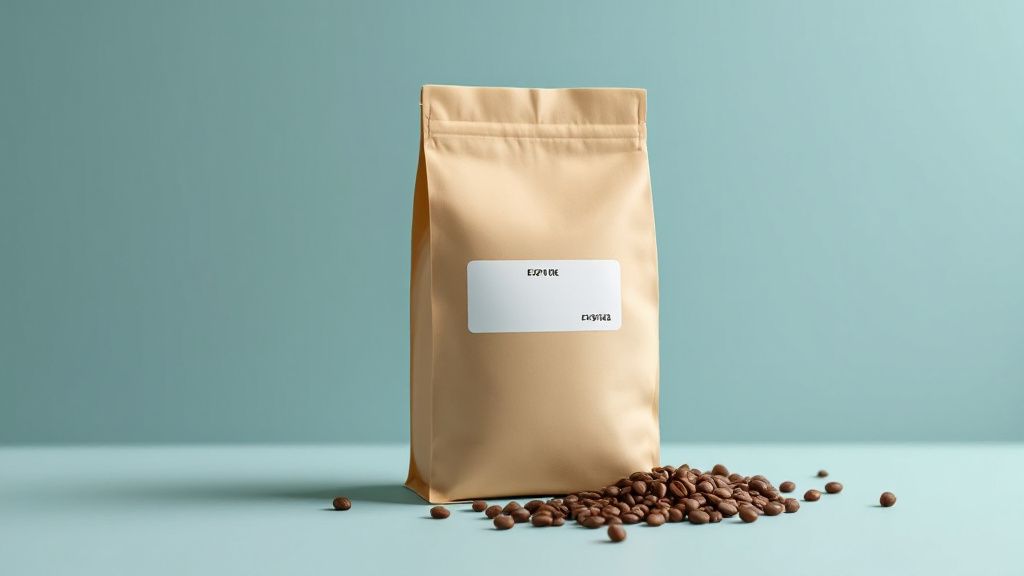
The Importance of Coffee Freshness
The freshness of your coffee significantly impacts its taste and aroma. Freshly roasted beans have a complex, rich flavor profile that diminishes over time due to exposure to air, moisture, and light. To preserve the freshness, storing your beans in an airtight container away from direct sunlight is essential. This care ensures your coffee retains its desirable taste without bitterness sneaking in.
When it comes to different types of coffee, freshness is even more critical as it enhances their unique characteristics. The current state of coffee freshness shows a growing trend toward small-batch roasting. This practice caters to an expanding consumer interest in experiencing the nuanced flavors of freshly roasted beans, which large-scale production methods might not always capture.
Coffee brewing techniques also benefit from fresh beans, as they extract more vibrant flavors. Incorporating freshly roasted beans into your coffee drink recipes can elevate the overall taste. As consumers become more discerning, emphasizing freshness in your daily routine can transform a simple cup into an enjoyable, aromatic experience, aligning with the trend of prioritizing quality over quantity in coffee consumption.
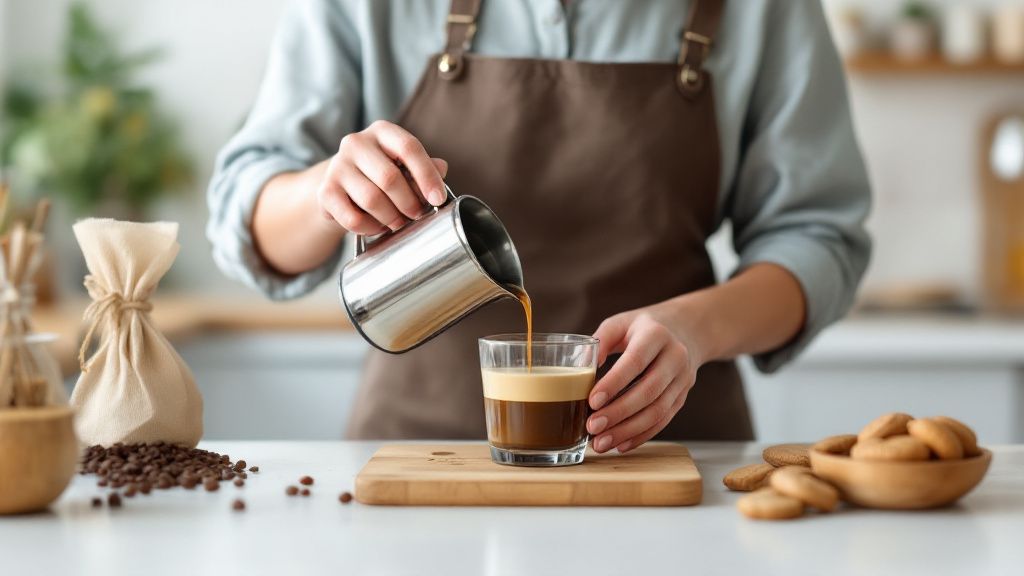
Adjusting Your Coffee Recipe
Adjusting your coffee recipe can make a world of difference when it comes to reducing bitterness. Start by reassessing the coffee-to-water ratio. If you're using too much coffee, the flavors may become over-concentrated, leading to bitterness. Experimenting with different ratios tailored to the type of coffee you prefer can reveal a better balance that suits your taste.
Exploring varied coffee brewing techniques is another effective way to refine your recipe. Techniques such as pour-over or cold brew offer different extraction processes that might unveil smoother, less bitter flavors. Each method brings out unique nuances, demonstrating how tweaking the brewing approach can personalize and optimize your coffee.
Playing with brewing time can also be critical. Shortening or extending the brew time impacts the extraction of flavors. Experiment by varying the timing for the same types of coffee to see how the taste transforms. This exploration assists in fine-tuning your recipe to reduce bitterness without sacrificing the complexity you enjoy.
In the next few years, consumer interest in personalized coffee drink recipes is likely to grow. This heightened involvement will encourage further innovation in home brewing solutions. As people increasingly seek out tailored coffee experiences, adjusting your recipe may become an essential skill, enabling you to create the perfect cup that caters to your specific palate.
Frequently Asked Questions
Why does my coffee taste bitter?
Bitterness in coffee is usually caused by over-extraction during brewing, rather than the beans themselves.
How can I reduce the bitterness of my coffee?
Adjust your brewing technique, including grind size, water temperature, and brewing time, to improve the flavor balance.
Is the type of water I use important for making coffee?
Yes, clean, filtered water at the correct temperature (195-205 degrees Fahrenheit) enhances the coffee's flavor and reduces bitterness.
Does coffee bean freshness affect bitterness?
Yes, fresh coffee beans tend to offer a more desirable flavor and less bitterness as compared to older beans.
Can changing my coffee recipe help with bitterness?
Yes, adjusting the coffee-to-water ratio and exploring different brewing methods can significantly reduce coffee bitterness.
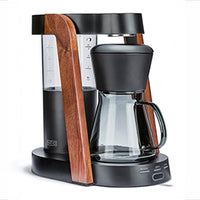 Ratio Eight S2
Ratio Eight S2
 Ratio Eight Original
Ratio Eight Original
 Ratio Six
Ratio Six
 Ratio Four
Ratio Four
 Compare Machines
Compare Machines
